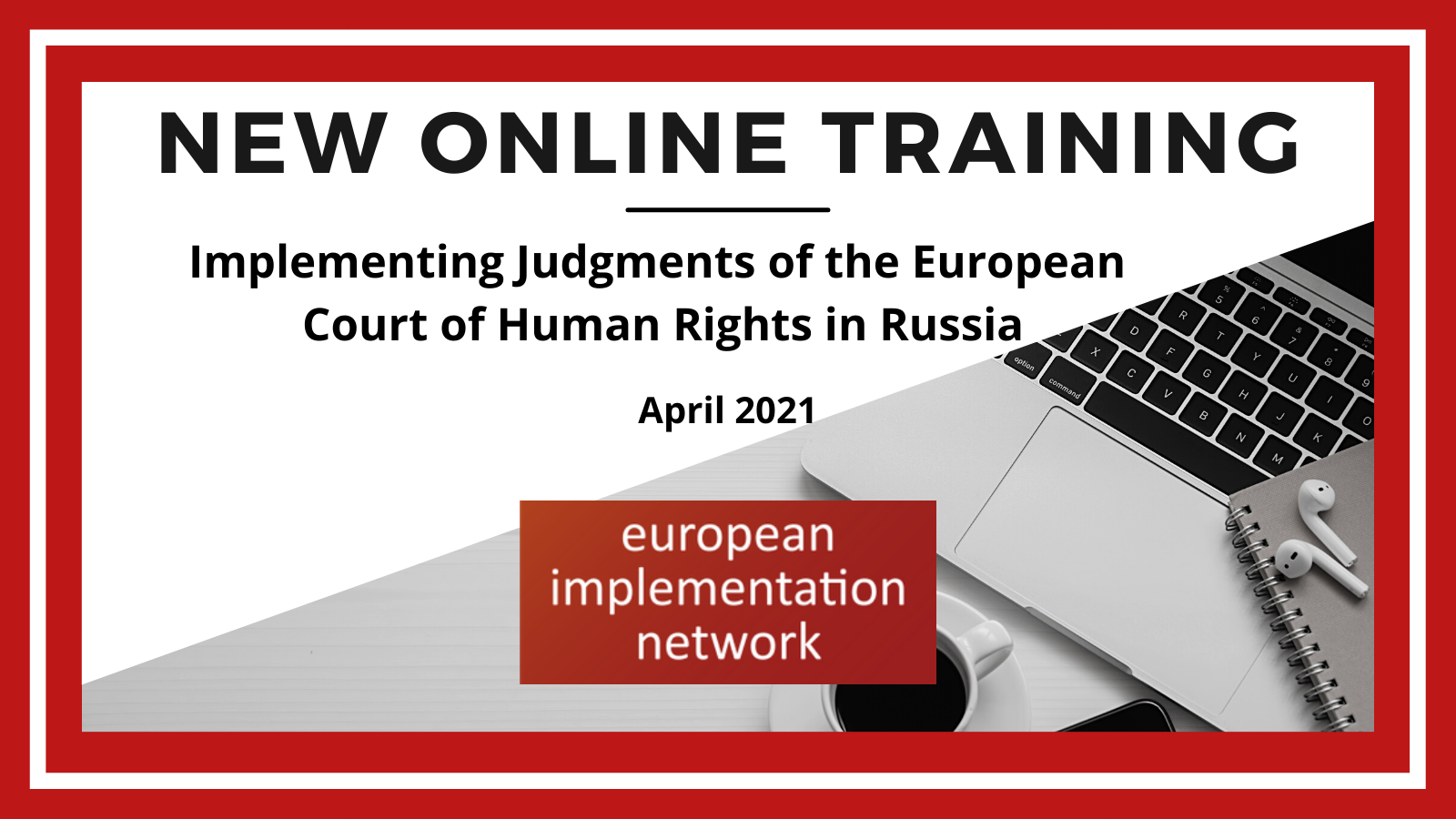Training: Implementation of ECtHR Judgments in Russia
/Last week, EIN held a three-day online training session on Implementing Judgments of the European Court of Human Rights in Russia. These sessions aimed to equip NGOs and lawyers with practical knowledge and insight into engaging with the CM judgment execution process when advocating for the full and effective implementation of ECtHR judgments.
The training took place over three sessions. The first session aimed to provide civil society organizations with an overview of NGO engagement in the ECtHR implementation process, focusing on NGO submissions. The second session addressed ECtHR implementation in Russia from the perspective of opportunities and challenges experienced by Russian NGOs working on the subject - including a session dedicated to violations of the right to freedom of expression. Finally, the third session focused on a practical application of the training material in selected cases, with parallel breakout rooms to enable participants to discuss how to approach particular cases on interest.
The first session provided an overview of NGO engagement in the ECtHR implementation process through several presentations by civil society organisations. Anna Maralyan, Deputy Director for Program and Development at the Centre de la Protection Internationale, gave the first presentation on her experience and perspective in engaging in the implementation process. Next, Adela Katchaounova, Legal Defense Programme Director at the Bulgarian Helsinki Committee, presented on how NGOs can get involved in the ECtHR implementation process. Finally, EIN Director George Stafford concluded the session with a presentation on infringement proceedings.
Professor Philip Leach, Professor of Human Rights Law, Director of the European Human Rights Advocacy Centre, School of Law, Middlesex University, introduced the second session on civil society experiences and challenges with the ECtHR implementation process in Russia. The first presentation of the day was by Barbora Bukovska, Senior Director for Law and Policy, Article 19, on the State of play and NGO involvement in Freedom of Expression cases in Russia. Next, Grigor Avetisyan, Implementation Director at Stichting Justice Initiative, Kirill Koroteev, Head of international practice at Agora International Human Rights Group, and Denis Shedov, OVD-Info Lawyer, all shared their organisations’ experiences and lessons-learnt. The training session concluded with a roundtable discussion involving speakers and participants.
During the final training session, Musa Khasanov and Ekaterina Malareva, lawyers at the Department for the Execution of Judgments (DEJ), set out key aspects for NGO submissions. The session then focused on a practical approach to selected cases through breakout rooms, enabling participants to discuss how to approach cases of particular interest. The selected cases were the Roman Zakharov v. Russia case, which concerns shortcomings in the legal framework governing interception of mobile telephone communications; the Mikheyev v. Russia group of cases, which concern deaths, torture or inhuman and degrading treatment while in police custody and the lack of effective investigations into these incidents; and the Pirogov case (allocated to the Chemodurov group), which concerns the criminal conviction of a journalist following public criticism a politician.
The training involved lively discussions about the opportunities and challenges of work on the implementation of ECtHR judgments in Russia. It concluded with a desire expressed by participants to continue joint work on this topic - with ongoing support from EIN.




